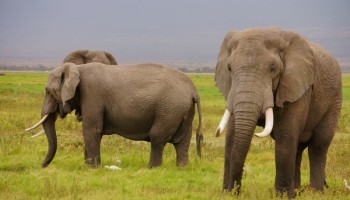Pascal Ochiba was arrested on January 18 in Kampala after being found in illegal possession of two pieces of ivory weighing slightly below 10 kilograms.
This was not the first time Ochiba got into conflict with the law.
In 2017, he was arrested for possession of four ivory pieces and an Okapi skin and subsequently sent to prison for 18 months.
Explaining her ruling, the judge said that as a habitual offender, Ochiba would pose a threat to Uganda’s endangered species if left free.
She added that offenses of unlawful possession of protected species were still rampant and there was a need to curb them down.
The sentence was made possible by Uganda’s 2019 Wildlife Act, which extended potential penalties for wildlife crime to life imprisonment.
Uganda’s elephant population, including both savannah and forest African elephants, was recorded at around 5,000 in 2016 – a marked increase from 700-800 elephants in the 1980s.
However, according to the Wildlife Conservation Society, Ugandan elephants are still exposed to significant poaching.
This comes in addition to the increasing encroachment of elephant migration routes by Uganda’s growing population, which fuels human-wildlife conflict.
Uganda, surrounded by countries with rich wildlife populations, has served as a prominent wildlife trafficking hotspot, with traffickers taking advantage of its so far weak law enforcement.
For example, a recently dismantled East African wildlife trafficking ring was reported to be headquartered in Uganda.
The Executive Director of the Uganda Wildlife Authority, Sam Mwandha, expressed optimism about the Court’s decision.
“This is a landmark achievement in our war on illegal wildlife trade in Uganda. We must do our best in our times to protect our wildlife otherwise history will judge us harshly,” he said.






